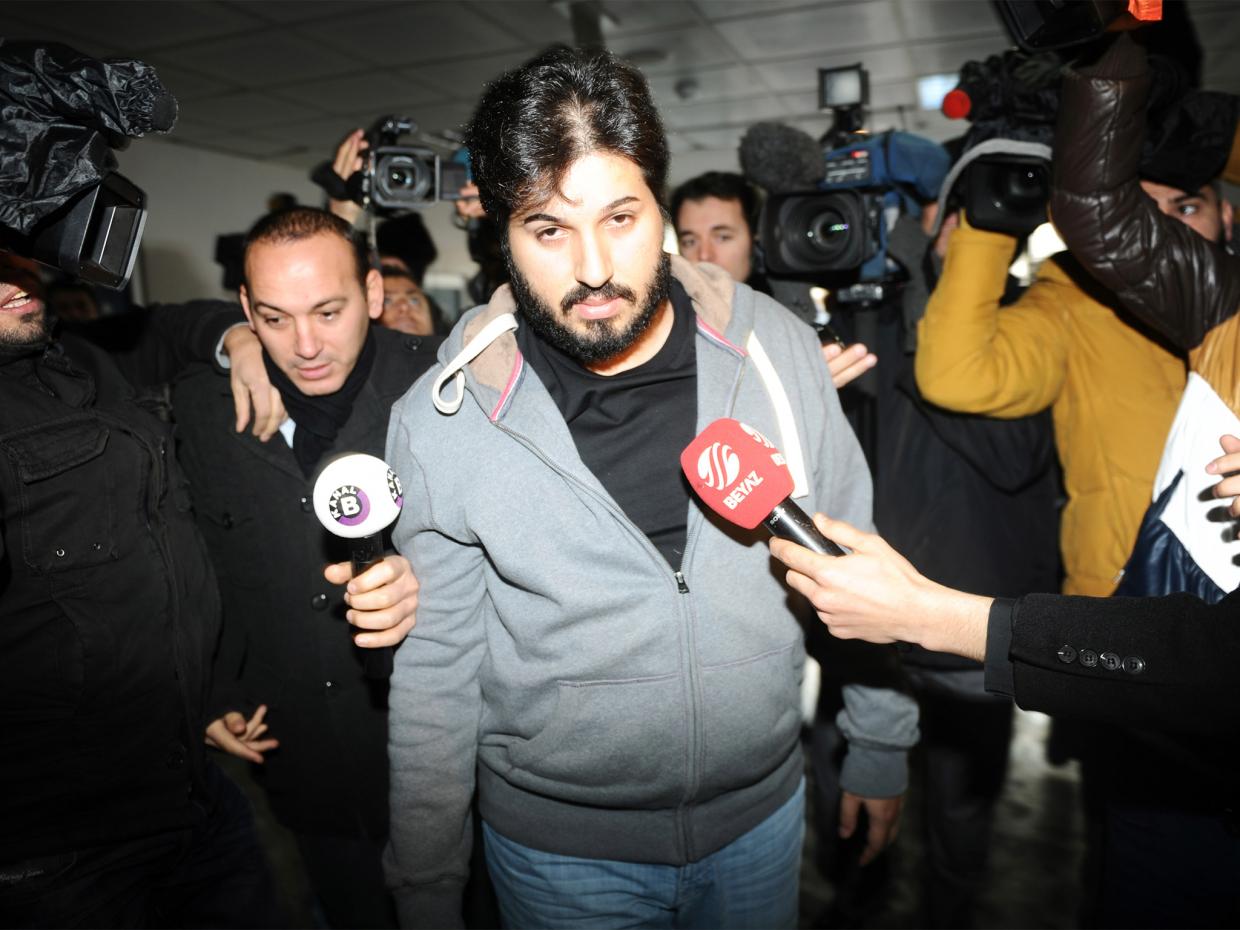Turkish-Iranian gold trader Reza Zarrab whose cross-examination at a high-profile U.S. case in New York City ended this week said Berat Albayrak, the son-in-law of President Recep Tayyip Erdogan and current energy minister of Turkey, pressed for the resumption of gold trade with Iran when he was released in 2014 after a corruption investigation was thwarted by Mr. Erdogan’s government.
The politically sensitive trial moves ahead to a new phase with full of surprises that left journalists and observers shudder.
Halkbank executive Mehmet Hakan Atilla, former Turkish Economy Minister Zafer Caglayan and former Halbank General Manager Suleyman Atilla are indicted by the U.S. prosecutors for shepherding a scheme to circumvent U.S. economic sanctions against Iran in early 2010s.
The past two days of Mr. Zarrab’s testimony and the defense’s aggressive push triggered fully explosive materials that could further draw ire of President Erdogan’s government.
Gold trader Zarrab, who previously implicated then-Prime Minister Erdogan in the sanction-evasion efforts, said he met with Mr. Aslan’s successor when he was released in spring of 2014 to mull resuming the gold trade.
But on Thursday, he went one step further. His lawyer contacted the businessman who bribed judges and authorities to acquire his release and told him that son-in-law of President Erdogan wanted the maintenance of the gold trade.
“The groom said this must be done. After talking to BB [prime minister], he will talk to the general manager and will tell him to start,” the lawyer told Mr. Zarrab of Mr. Albayrak’s instructions.
When the prosecutor asked Mr. Zarrab who was the businessman, he said he was Berat Albayrak. “The energy minister. But he was not the energy minister at the time,” he clarified.
In an interesting exchange, Cathy Fleming, lawyer of Hakan Atilla, asked him whether he heard of Gulenists.
Mr. Zarrab nodded positively. He said the group has various names in Turkey. “I don’t know whether they are a political group, religious group or terrorist group.”
The lawyer refused to embrace the latest label and challenged the businessman’s definition.
Fleming pushed back against the terror label. They don't blow things up, she says, adding something along the lines of surely we can agree.
Zarrab says that he doesn't know what they do.
Testimony moves on.
— Adam Klasfeld (@KlasfeldReports) December 7, 2017
New Witness Disputes Halkbank Executive’s Account
For days, the defense team of Hakan Atilla worked hard to portray banker as someone who had only a marginal role in contrast to other key figures in the sanctions-evasion scheme.
But a new witness, David S. Cohen, Undersecretary of Office of Terrorism and Financial Intelligence, casts doubt on that portrayal of the Turkish banker.
Mr. Cohen told the prosecutor that he relayed the U.S. concern over Halkbank’s role in gold trader with Iran in several meetings with U.S. officials and executives from Halkbank, including Mr. Aslan and Atilla, in Washington or in Turkey.
In spring of 2013, the U.S. was deeply concerned over the gold trade. Halkbank executives tried to reassure the U.S. authorities, he told the court.
On Dec. 12, 2012, Mr. Cohen sent an email to Suleyman Aslan and warned him about the gold trade involving Halkbank.
In the email, he said “… any Turkish sales of gold to GOI [Government of Iran] as part of a mechanism for the purchase of Iranian petroleum could expose those involved to U.S. sanctions.”
His remarks sit well with the depiction of the prosecutors who cast Mr. Atilla as the key architect at the bank who orchestrated and facilitated the infrastructure of the entire scheme.
The banker’s lawyers, however, say he was just a pawn in a wider drama that involves international intrigue and bigger political actors.




Comments are closed.